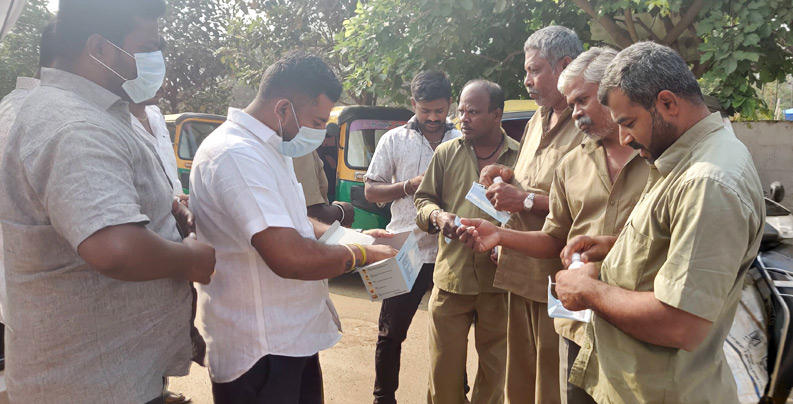What is corona virus / COVID-19?
Coronavirus disease 2019 (COVID-19) is an infectious disease caused by severe acute respiratory syndrome coronavirus 2 (SARS-CoV-2). The disease was first identified in 2019 in Wuhan, China and has since spread globally, resulting in the 2019–20 coronavirus pandemic.
What are the symptoms of COVID -19?
Common symptoms include fever, cough, and shortness of breath. In less common cases people experience muscle pain, sputum production, diarrhea, and sore throat. While the majority of cases result in mild symptoms, some progress to severe pneumonia and multi-organ failure.
What is the incubation period of COVID-19?
As is common with infections, there is a delay from when a person is infected with the virus to when they develop symptoms, known as the incubation period. The incubation period for COVID-19 is typically five to six days but may range from two to fourteen days. As of 20th March 2020, the rate of deaths per number of diagnosed cases is 4.1 percent; however, it ranges from 0.2 percent to 15 percent, according to age group and other health problems.
How does the corona virus spread? How long does the virus stay on surfaces?
The virus is typically spread from one person to another via respiratory droplets produced during coughing. It may also be spread from touching contaminated surfaces and then touching one's face. The virus can live on cardboard for up to 24 hours, and surprisingly it can live for 72 hours on plastic or steel - but only 4 hours on copper.
What is the diagnosis and cure for COVID-19?
The infection can also be diagnosed from a combination of symptoms, risk factors and a chest CT scan showing features of pneumonia. There is no vaccine or specific antiviral treatment for COVID-19. Management involves treatment of symptoms, supportive care, isolation, and experimental measures.
How do we stop the corona virus from spreading?
The World Health Organization (WHO) declared the 2019–20 coronavirus outbreak a Public Health Emergency of International Concern (PHEIC) on 30th January 2020 and a pandemic on 11th March 2020.
To prevent transmission of the virus, it is recommended that infected individuals stay home except to get medical care, call ahead before visiting a healthcare provider, wear a face mask when exposed to an individual. For the rest, social distancing is very important…cover coughs and sneezes with a tissue, regularly wash hands with soap and water and avoid sharing personal household items. Individuals must wash their hands often with soap and water for at least 20 seconds, especially after going to the toilet or when hands are visibly dirty, before eating and after blowing one's nose, coughing, or sneezing. Its further recommended to use an alcohol-based hand sanitizer with at least 60% alcohol, but only when soap and water are not readily available. The WHO advises individuals to avoid touching the eyes, nose, or mouth with unwashed hands. Spitting in public places also should be strictly avoided. As of 23rd March, many cities in India are under lockdown to stop the virus from transmitting to another person…please do your bit and stay at home as much as possible! Shamanna Soma Shekar has done his bit by giving people in need masks and sanitizers, he has also educated people about the severity of this disease and encourages people to stay home except when it’s crucial to go out.

